
If you’ve ever had a little too much cannabis and suddenly found yourself dizzy, anxious, or glued to the couch with the spins — you’ve experienced what’s known as greening out. Don’t worry, it happens to the best of us. The good news? It’s temporary, manageable, and totally preventable next time around.
Here’s your go-to guide for surviving (and bouncing back from) a green-out.
“Greening out” is just cannabis slang for getting way too high — so high that your body and brain feel like they’re in panic mode. It’s not dangerous, but it can feel pretty uncomfortable. Symptoms include:
Sound familiar? If so, here’s how to ride it out like a pro.
If you’re the sober buddy — or at least the less high one — here’s how to help:
Nobody plans to green out, but prevention is pretty easy:
Greening out feels rough, but it’s important to remember that it's not the end of the world and it's not life-threatening. With a little water, some deep breaths, and maybe a nap, you’ll be back to baseline soon enough. The key is learning your limits and treating cannabis with respect so that your next session is fun, not stressful. Want to learn more about safe cannabis use in Utah or get a Medical Cannabis Card of your own? Book an appointment today!
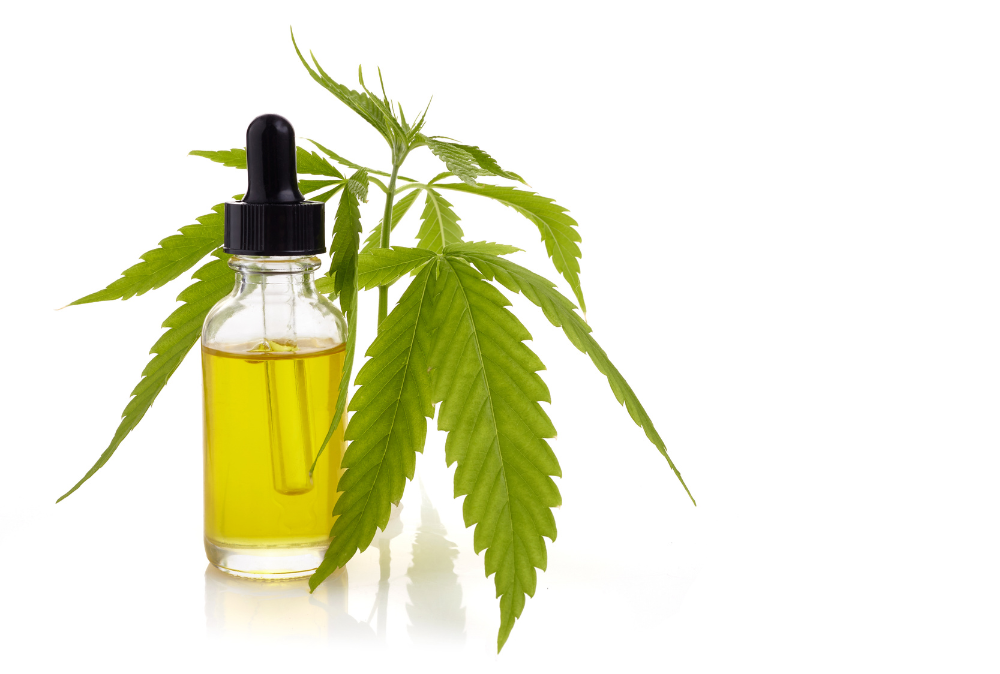
If you’ve spent more than five minutes exploring the world of cannabis or wellness, you’ve probably heard people talk about cannabidiol, a.k.a. CBD. Maybe you’ve even tried it yourself — but what is it exactly? And does it actually do anything?
Let’s break it down in plain English: what it is, what it’s good for, and how to figure out if it’s right for you.
Cannabidiol is long for CBD (yeah, it’s a mouthful), and it’s a compound found in hemp — part of the cannabis family. It’s totally non-intoxicating, which means it won’t get you high like THC does. That’s a big reason why so many people feel comfortable using it for health and wellness.
CBD works with your endocannabinoid system (ECS) — basically your body’s natural balancing system that helps regulate things like sleep, mood, stress, inflammation, and pain. When your ECS is off, you might feel off. CBD can help get things back in sync.
While CBD isn’t magic, it’s backed by science and a ton of personal stories from people who’ve found real relief. Here are some areas where it really shines:
For most people? Yep. It’s generally well-tolerated and doesn’t come with a long list of scary side effects. That said, it can interact with certain medications — especially things like blood thinners — so it’s smart to talk to a medical provider before diving in.
Luckily, UtahMarijuana.org connects you with real medical professionals who can guide you through options like CBD, THC, or full Medical Cannabis treatment plans.
Not all CBD is created equal. If you’re buying it at a gas station... maybe rethink that. Here’s what to look for:
Good CBD should be free of pesticides, heavy metals, and sketchy additives.
CBD isn’t a miracle cure, but it can be a really helpful tool — especially when it’s part of a bigger wellness or Medical Cannabis plan. Whether you’re managing pain, anxiety, sleep problems, or just want to feel more balanced, it’s worth exploring.
At UtahMarijuana.org and our affiliated clinic, KindlyMD, we’re here to help you understand your options and support your health goals with licensed professionals who actually listen. If you’re thinking about CBD — or even getting your Utah Medical Card — we’ve got your back.
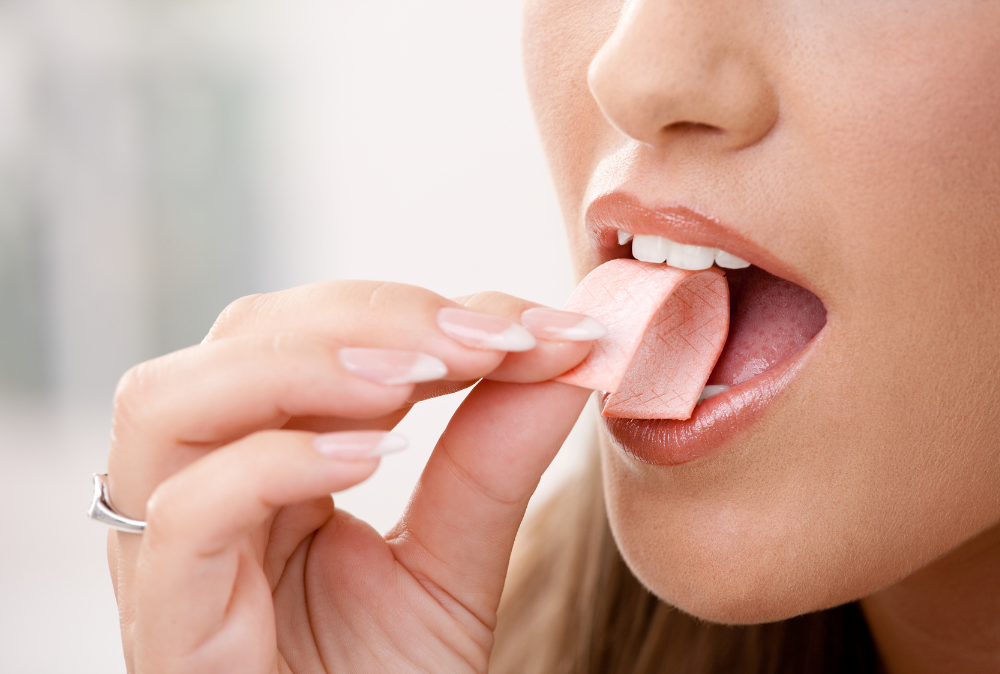
If you’re a Medical Cannabis patient or recreational user, chances are you’ve experienced that unmistakable dryness in your mouth known as cottonmouth. But what exactly causes it? Is it a sign of dehydration? Can it be prevented? Let's spend some time together to explore the science behind cottonmouth, dispel common myths, and hopefully, find some practical advice.
Cottonmouth, medically referred to as xerostomia, is the sensation of a dry, sticky mouth that is often experienced after using cannabis. It can range from mild discomfort to significantly dry conditions that make speaking or swallowing difficult.
This side effect is not exclusive to smoking — edibles, tinctures, and vapes can all lead to cottonmouth.
The primary reason cannabis causes cottonmouth lies in how it interacts with the endocannabinoid system (ECS) — a network of receptors that help regulate various bodily functions, including saliva production.
Cannabis contains compounds known as cannabinoids, with THC (tetrahydrocannabinol) being the most well-known. THC binds to CB1 and CB2 receptors found throughout the body — including in the submandibular glands, which are responsible for producing around 70% of your saliva.
When THC binds to these receptors, it inhibits the signals that tell the glands to make saliva, effectively drying out the mouth. A 2006 study confirmed that cannabinoid receptors in salivary glands play a major role in the dry mouth process.
Contrary to popular belief, cottonmouth is not a direct result of dehydration. While staying hydrated is always important for overall health, cottonmouth stems from suppressed salivary gland activity, not a lack of water in the body.
Drinking water may temporarily relieve the dryness, but it doesn’t address the root cause — suppression of saliva production due to cannabinoid activity. That said, chronic cannabis use combined with low water intake can exacerbate dry mouth symptoms.
Certain factors can increase your likelihood of experiencing cottonmouth:
While there’s no guaranteed way to prevent cottonmouth, there are several strategies that can help manage it:
While cottonmouth itself is usually harmless, chronic dry mouth can increase your risk of dental issues, including cavities, gum disease, and bad breath. If you regularly consume cannabis and notice ongoing dryness, speak with a dentist or healthcare provider.
Cottonmouth is a common and well-understood side effect of cannabis use, caused by THC’s suppression of saliva production — not dehydration. While it may be inconvenient, it’s typically easy to manage with hydration, salivary stimulants, and good oral hygiene.
While we’re at it, if you or someone you know may benefit from Medical Cannabis use, see if you qualify or schedule to get a card today.
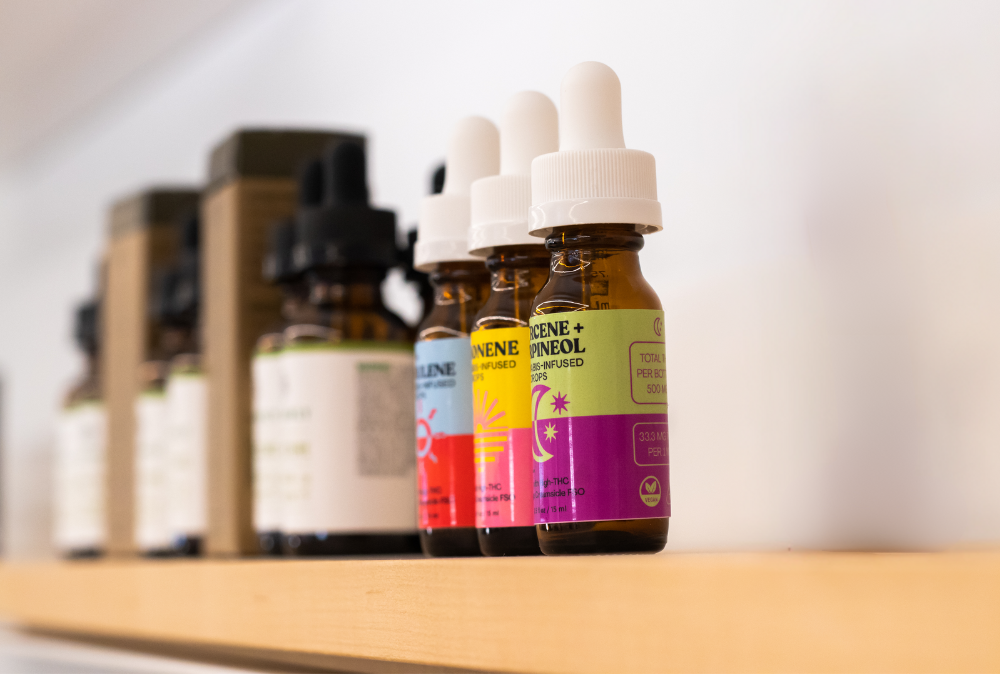
So, your favorite strain is gone. Discontinued. Vanished into the cannabis void. Maybe it had the perfect balance of chill and focus or helped you sleep like a rock. Whatever it did — it worked — and now you’re stuck staring at a shelf full of names that mean nothing to you. It's happened to the best of us.
Don’t stress. Instead of hunting down a strain by name, try choosing your next go-to based on its cannabinoid profile. That’s the real key to replicating how your old favorite strain made you feel.
Here’s how to do it.
Strain names are fun, but they’re not as permanent or consistent as you might think. A few (but not all of the) reasons why they disappear are:
So instead of chasing names, start chasing the science.
The effects you feel from a cannabis product aren’t just about the name on the label; They’re about the cannabinoids inside it.
Cannabinoids are the active compounds in cannabis that interact with your body’s endocannabinoid system to influence things like mood, energy, appetite, inflammation, and sleep.
Here are some of the most important ones to know:
The OG psychoactive compound. It’s responsible for the euphoric, “high” feeling. As a general rule of thumb:
Non-intoxicating, calming, and known for reducing anxiety and inflammation. Often paired with THC to mellow out the high. Great for people who want to feel better, not blitzed.
The “mother cannabinoid.” Early research suggests it may help with focus, inflammation, and even gut health.
Mildly psychoactive and deeply sedating. Often found in aged cannabis or sleep-specific products. Ideal if your old favorite helped you sleep.
Energizing, appetite-suppressing, and stimulating in low doses. It’s rare, but if your go-to strain helped you focus and skip the munchies, this might be why.
If your favorite strain is discontinued, here's how to shop smart:
If your old strain just hit differently, it could be the result of the entourage effect: the synergy between cannabinoids and terpenes. So, while cannabinoids drive most of the effect, don’t ignore the terpenes (like limonene, myrcene, or pinene) that give each product its personality.
When in doubt, ask your local cannabis pharmacist if they can recommend something with a similar cannabinoid and terpene profile to your discontinued strain.
Instead of mourning a specific strain, get curious about what was inside that flower, cartridge, or edible that worked so well for you. Learning how to choose cannabis by cannabinoid profile puts the power back in your hands so you’re never left stranded when a product vanishes. Because let's be honest: this isn't the first time and it probably won't be the last.
If you’re in Utah and ready to explore Medical Cannabis options that match your goals — whether that's relief from pain, nausea, or something else — we’re here to help. Book an appointment today to get your Medical Cannabis Card and get connected with a canna-expert and pharmacist who can help decode your perfect profile.

If you’ve ever stopped using cannabis after a long stretch and suddenly found yourself in a movie-length dream marathon every night — you’re not imagining things. Cannabis and dreams have a very real relationship, and it all comes down to how weed plays with your sleep cycles.
In this post, we’re going to explore how cannabis can affect your dreams, why you might stop dreaming while using it, and what happens when you hit a tolerance break or quit cold turkey. So, grab your stash (or don’t), get comfy, and let’s dive into what it really means to dream high.
Dreams mostly happen during REM sleep (that’s short for rapid eye movement), which is a lighter sleep phase that typically occurs in 90-minute cycles. This is when your brain goes wild with vivid, cinematic dreamscapes and it’s crucial for emotional and memory processing.
Now here’s the kicker: cannabis can suppress REM sleep. One of weed’s lesser-known superpowers is its ability to reduce the amount of time you spend in REM. According to studies, THC (the main psychoactive compound in cannabis) can shorten REM sleep and increase deep sleep instead.
Translation? You dream less when you’re regularly using cannabis.
Because you’re literally dreaming less. When cannabis suppresses REM sleep, your brain doesn’t enter that dream-heavy state as often or as intensely. This makes dream recall harder and dreams less vivid.
Many people who use cannabis nightly report not remembering their dreams at all — and that’s totally normal. You’re still sleeping, but the “nightly Netflix in your brain” is turned way down.
Now here’s where things get trippy.
If you’ve ever taken a tolerance break or quit using cannabis altogether, you might experience a “REM rebound.” This means your body tries to make up for lost REM time by flooding you with intense, often super vivid dreams—sometimes for days or even weeks.
This isn’t a bad thing. It’s just your brain recalibrating. REM sleep is essential for cognitive and emotional health, so this bounce-back is a sign that your brain is doing what it needs to do.
Short answer: not typically.
Cannabis isn’t known to enhance dream recall or intensity — in fact, most studies suggest the opposite. But some anecdotal reports (and Reddit threads galore) say that low doses of certain cannabinoids like CBN (cannabinol) or strains high in terpenes like myrcene may help promote deeper sleep without fully suppressing dreams.
Want to try to dream high? Try:
Just know that science is still catching up on exactly how different cannabinoids affect sleep architecture. So, take any “dream booster” claims with a grain of kief.
Alright, here’s what we know. Cannabis can be an amazing tool for relaxation, pain relief, and deeper sleep — but when it comes to dreams, it’s more likely to mute them than enhance them. So no, you probably aren’t going to dream high.
If you’re looking to remember your dreams more clearly, taking a short break from cannabis (commonly called a tolerance break) use might be just what your brain needs to hit that REM reset button.
Whether you’re blazing every night or taking a mindful break, it’s all part of learning how your body and brain respond to cannabis. And hey, sweet dreams either way.

Astrology gives us a glimpse into our personalities, moods, and preferences, so why shouldn’t we use it to guide our cannabis choices, too? If you’re into astrology and cannabis (as all the best people are), here comes the cosmic crossover you didn’t know you needed.
Terpenes, the flavorful, aromatic compounds in cannabis (and other plants, for that matter) influence how you feel — chill, focused, uplifted, sleepy, etc. — and the real tea? Some terpenes match your zodiac sign's energy perfectly. Whether you're a sensitive Pisces or an overachieving Capricorn, there's a terpene with your name on it.
Aries Vibe Check: High-energy, go-getter, 100% chaotic good. You live for adventure and have a low tolerance for slow vibes.
Why Limonene: Bright, citrusy, and mood-lifting — limonene brings energy and motivation without overstimulating your fire sign brain.
Best for: Pre-hike pep, hyping yourself up for a first date, or tackling your inbox with rage and positivity.
Taurus Vibe Check: Chill, loyal, comfort-motivated, luxury-loving homebody. You’re probably reading this from under a weighted blanket.
Why Myrcene: It’s super relaxing — like, melt-into-the-couch relaxing — and famous for its sleepy, full-body effects.
Best for: Self-care nights, Netflix marathons, and post-brunch naps that accidentally last all afternoon.
Gemini Vibe Check: Talkative, curious, always thinking 10 steps ahead (sometimes out loud).
Why Pinene: This terpene promotes mental alertness and memory — perfect for keeping up with your own ideas mid-convo.
Best for: Late-night convos that turn into philosophical debates, learning something random on Reddit, or staying sharp at family game night.
Cancer Vibe Check: Soft, sentimental, moody (in a poetic way). Feels things deeply and watches old movies for comfort. You’re all about emotional safety and protecting your energy.
Why Linalool: A calming, anti-anxiety terpene that helps regulate emotion and promotes relaxation. It’s plant-based emotional support and perfect for helping you turn down the volume on your feels.
Best for: Crying in the bath (in a healing way), grounding yourself during emotional swells, or de-stressing after a people-heavy day.
Leo Vibe Check: Charismatic, passionate, confident. You’re the main character and you know it, but you’re a big softie with an even bigger heart.
Why Caryophyllene: This anti-inflammatory terp also has mood-regulating qualities, balancing your inner fire while keeping you radiant.
Best for: Performing (on stage or in life), high-energy days when you need to stay grounded, or reflecting without losing your shine.
Virgo Vibe Check: Analytical, productive, low-key perfectionist with a hyper-organized Notes app.
Why Pinene: Sharpens focus and supports memory — great for getting things done without spiraling into overthinking.
Best for: Deep cleaning your entire apartment “just because,” organizing, or making a multi-step wellness routine.
Libra Vibe Check: Lives for an aesthetic, charming peacemaker with a curated vibe for literally everything.
Why Limonene: Uplifting and bright — just like you. It supports mood balance and helps keep your social battery charged.
Best for: Hosting a picturesque picnic, planning the perfect night in, or flirting without trying too hard (as per usual).
Scorpio Vibe Check: Intense, mysterious, emotionally complex (if you’re lucky enough to see that side of them).
Why Linalool: Soothing, anxiety-reducing, and perfect for quiet, deep introspection — which is your love language.
Best for: Tarot card nights, processing big emotions, or turning off the world to reconnect with your inner depths.
Sagittarius Vibe Check: Bold, funny, unpredictable, always booking the next spontaneous trip.
Why Caryophyllene: This terp keeps you chill and physically relaxed while letting your wild spirit roam free.
Best for: Post-adventure muscle relief, laughing too hard at your own jokes, or balancing wanderlust with some grounding energy.
Capricorn Vibe Check: Driven, structured, strong silent type — but soft when you let your guard down.
Why Myrcene: Deeply relaxing and body-soothing, it helps you unwind after overachieving all day (again).
Best for: Post-work decompression, staying mellow during power moves, or reminding yourself to breathe.
Aquarius Vibe Check: Quirky, inventive, unpredictable genius energy. You're a walking think piece.
Why Terpinolene: Creative and cerebral, this terpene stimulates the mind and encourages fresh ideas.
Best for: Brainstorming a side hustle at 1am, vibing out to weird playlists, or reinventing your entire identity midweek (again).
Pisces Vibe Check: Dreamy, emotional, artistic, and lowkey psychic. Lives half in the real world, half in a Studio Ghibli film.
Why Linalool: This gentle, floral terp supports emotional ease and creativity — ideal for your soft, intuitive soul.
Best for: Painting through your tears (in a cute way), writing poetry in your Notes app, or napping in the sun.
Whether you're chasing energy, clarity, or full-on chill, there's a terpene that fits your zodiac vibe like it was literally made for you. Check out our helpful terpene benefit guide for more information about some of your favorite terpenes.
Want to try your sign’s terpene IRL? Head to your local dispensary to hunt for strains and products that make your cosmic self-care even more you. But don’t forget that in Utah, a Medical Cannabis Card is required to enter a dispensary and purchase any product with more than 0.3% THC in it. Let our team help you get a Medical Marijuana Card today.
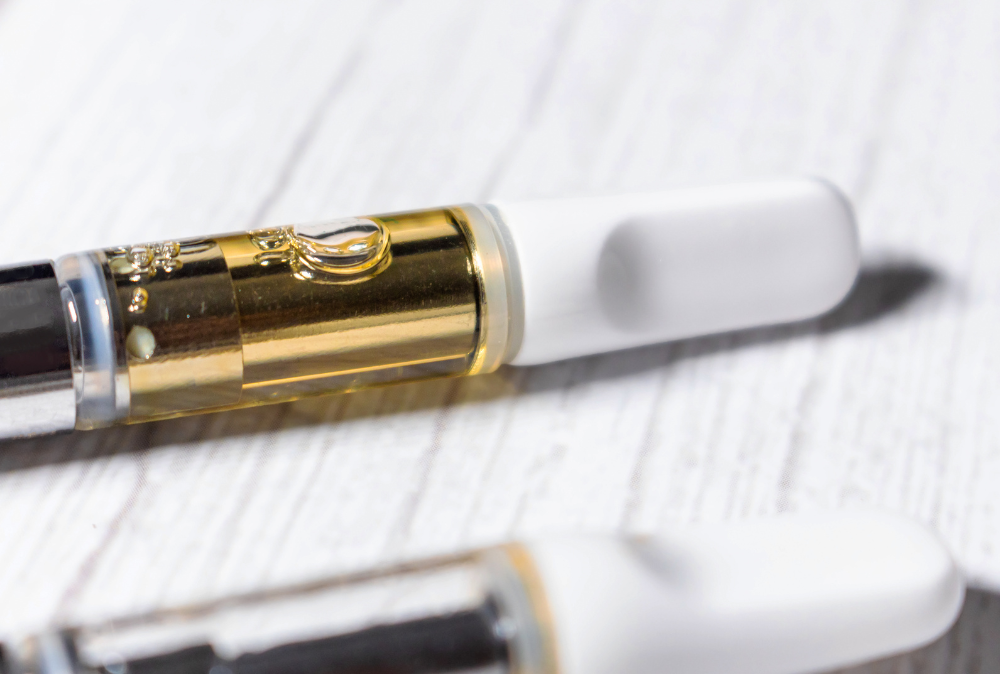
So, you just popped a new vape cartridge onto your battery, all excited to take a hit … and nothing. Nada. Zilch. No vapor, no buzz, no relief — just disappointment. Before you toss it out, take a breath. Broken carts (or ones that seem broken) are a super common issue, and most of the time, they're totally fixable.
Here’s your simple, no-BS guide on how to fix a broken vape cartridge — even if you’re not exactly a tech wizard.
Let’s start with some simple detective work. A “broken” vape cartridge might actually just be a dead or finicky battery.
Pro tip: If your battery has adjustable voltage, start low and bump up the temp slowly. Too much heat can wreck your oil.
Problem: It’s Clogged
A clogged cart is the most likely issue, especially if it’s been sitting around or the oil is thicker.
Problem: Connection Drama
Sometimes your cart and battery just aren’t vibing.
In some cases, if the vape cartridge was purchased at a pharmacy or dispensary, the facility would have a policy in place for defective products. For example, local Utah medical dispensary, WholesomeCo Cannabis, has a return policy that makes it simple. You can log in to your account and report your defective product online in a matter of minutes. Once the team reviews and verifies your report, you’ll be refunded the cost of the cart to your account in the form of a credit.
If the cart is truly toast (cracked, leaking, or otherwise donezo), don’t cry over spilled THC. You can still rescue the oil.
Most vape cartridge issues are totally fixable and learning how to fix a broken vape cart just takes a little patience (and maybe a paperclip). Before giving up, try the quick fixes above — you might save yourself the cost of a new cart and a trip back to the dispensary.
Got a cart that still won’t hit after all this? Check out this WikiHow guide for more in-depth troubleshooting tips.
May your clouds be fat and your carts forever hitting smooth. Happy vaping!
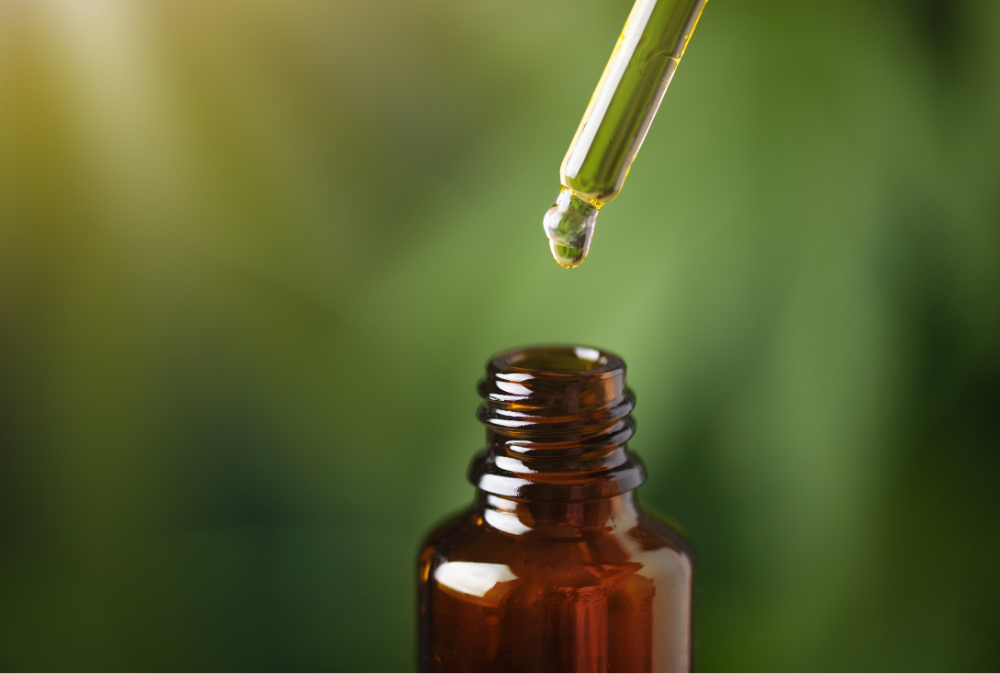
So, you’re curious about cannabis, but the idea of getting too high gives you pause? Maybe you're a patient looking for the medical benefits of cannabis, but not the high, or a seasoned toker looking for a smoother, more productive buzz. Welcome to the wonderfully balanced world of microdosing cannabis — the Goldilocks zone of getting high: not too much, not too little, but juuust right.
Microdosing cannabis is the practice of consuming very small amounts of THC (usually between 1 to 5 milligrams) to enjoy the plant’s benefits without experiencing the full psychoactive effects. Think of it like sipping a cocktail instead of downing a shot — it's all about subtlety.
While microdosing is common in the world of psychedelics, it's gaining major traction in the recreational and Medical Cannabis communities because it can enhance mood, creativity, and focus, as well as address conditions like pain, nausea, and anxiety — all while keeping you totally functional.
Microdosing isn’t just for newbies or medicinal users — it’s for anyone who wants to enjoy the benefits of weed without going full stoner mode. Whether you’re a creative looking for inspiration, a parent juggling a million things, or someone managing chronic pain, microdosing cannabis could be your hero, baby, as Enrique Iglesias might say.
Cannabis isn’t one-size-fits-all, and that’s kind of the beauty of it. Microdosing cannabis lets you explore its therapeutic potential without the intensity. It’s a gentle, intentional way to bring a little extra good energy or relief into your day — minus the fog.
Ready to give it a try? Let’s chat! Schedule with us today to get a Utah Medical Cannabis Card. Or, if you’re still not sure, poke around our website for helpful tips, guides, articles, and answers to all your questions about cannabis. If we don’t have an answer for you online, our helpful team is always happy to help. Give us a call.
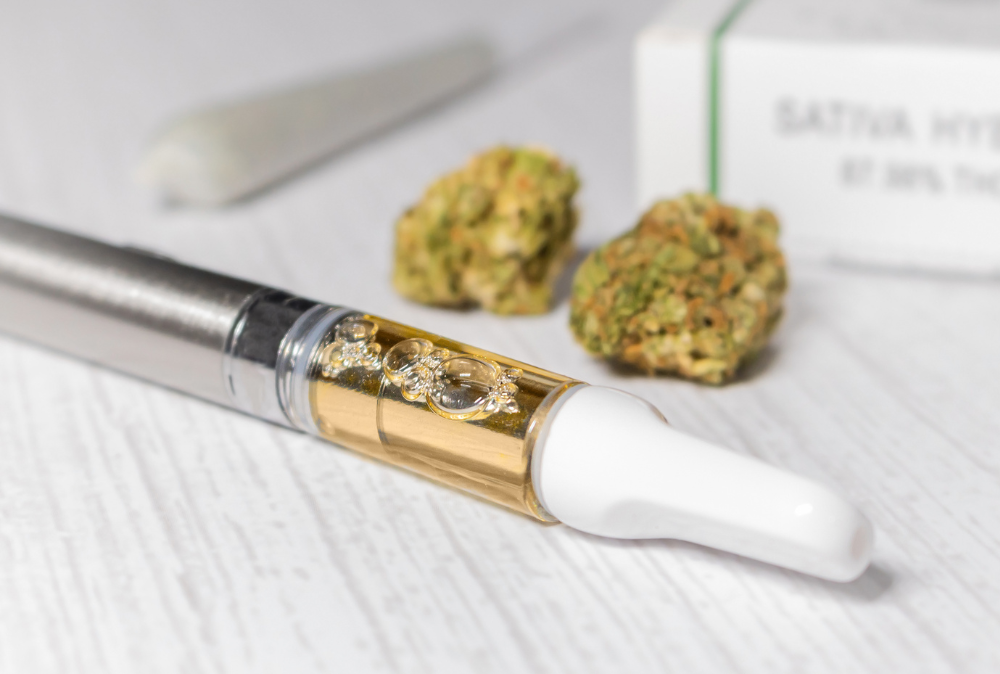
Cannabis has become a hot topic lately, whether you're hearing about it as a relaxing way to unwind or as a legit option for treating various health conditions. As more places legalize cannabis for both medical and recreational use (sometimes called adult use), it’s important to understand the difference between the two — and why it matters when you’re deciding what’s right for you.
At its core, the difference between recreational and Medical Cannabis comes down to why you’re using it. Are you lighting up for fun or using it to manage a health condition? While that’s the basic distinction, there are some key differences in how they’re made, sold, and even taxed.
Here’s a quick breakdown:
Understanding the difference between recreational and Medical Cannabis isn’t just about knowing the rules — it can actually make a big difference in your experience.
At the end of the day, cannabis is an incredibly versatile plant, but the way you use it depends on what you’re looking for. Medical Cannabis can be a game-changer for people dealing with serious (qualifying) health conditions, while recreational cannabis offers a great way to relax and have fun.
The most important thing is to educate yourself. Whether you’re seeking relief or just a good time, understanding the products, knowing your local laws, and choosing wisely can help ensure a positive experience. Cannabis works wonders for some — just make sure you know what works best for you before diving in! For canna-guidance or to get a Medical Cannabis Card in Utah, schedule an appointment today.